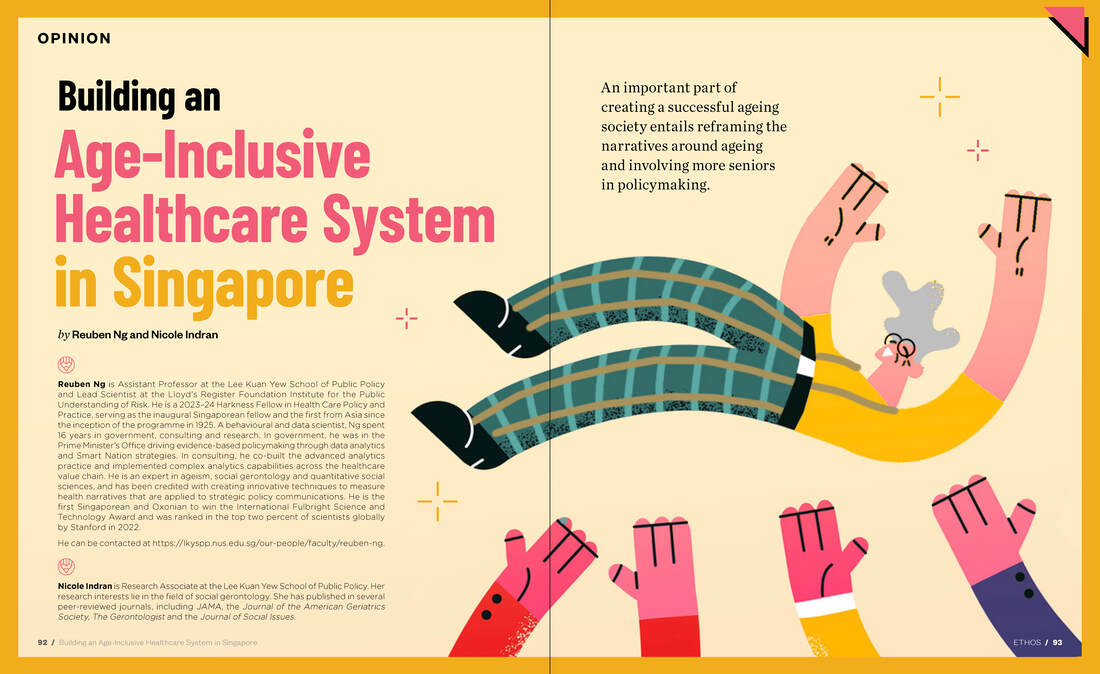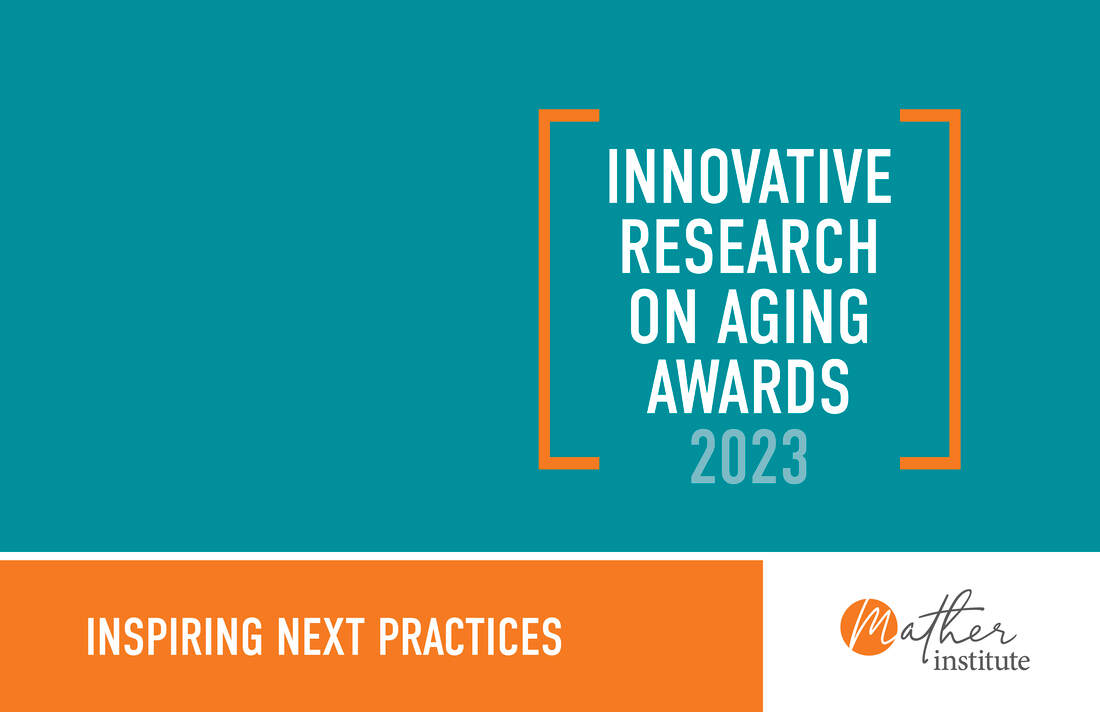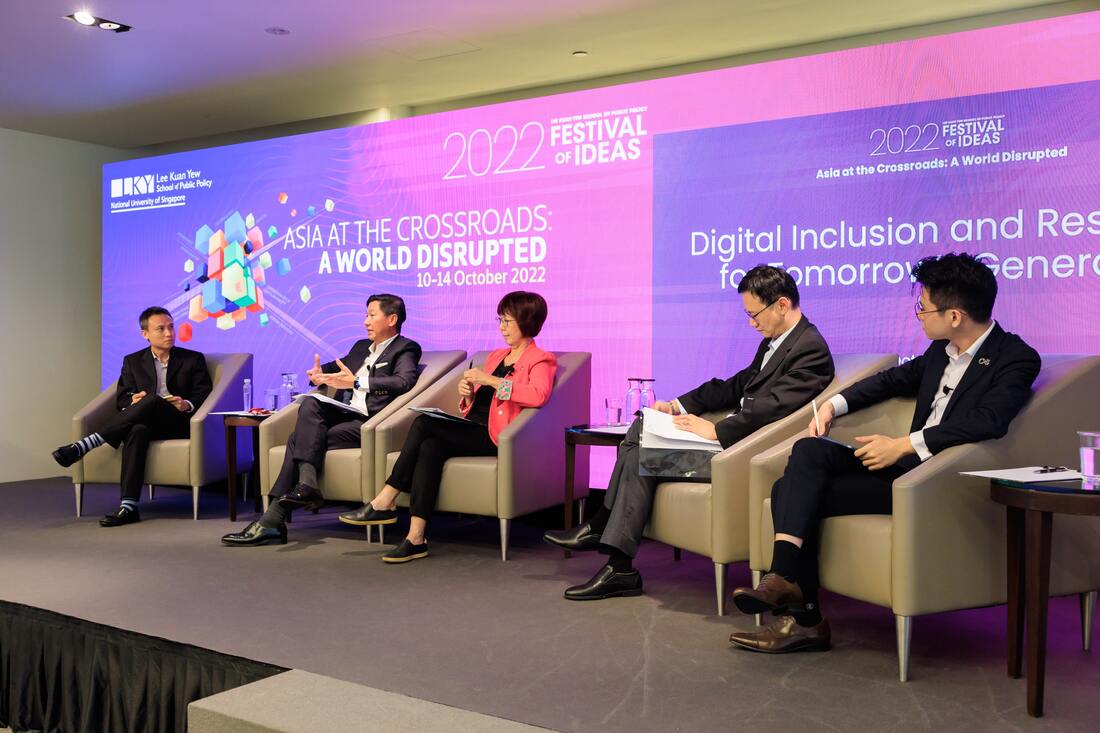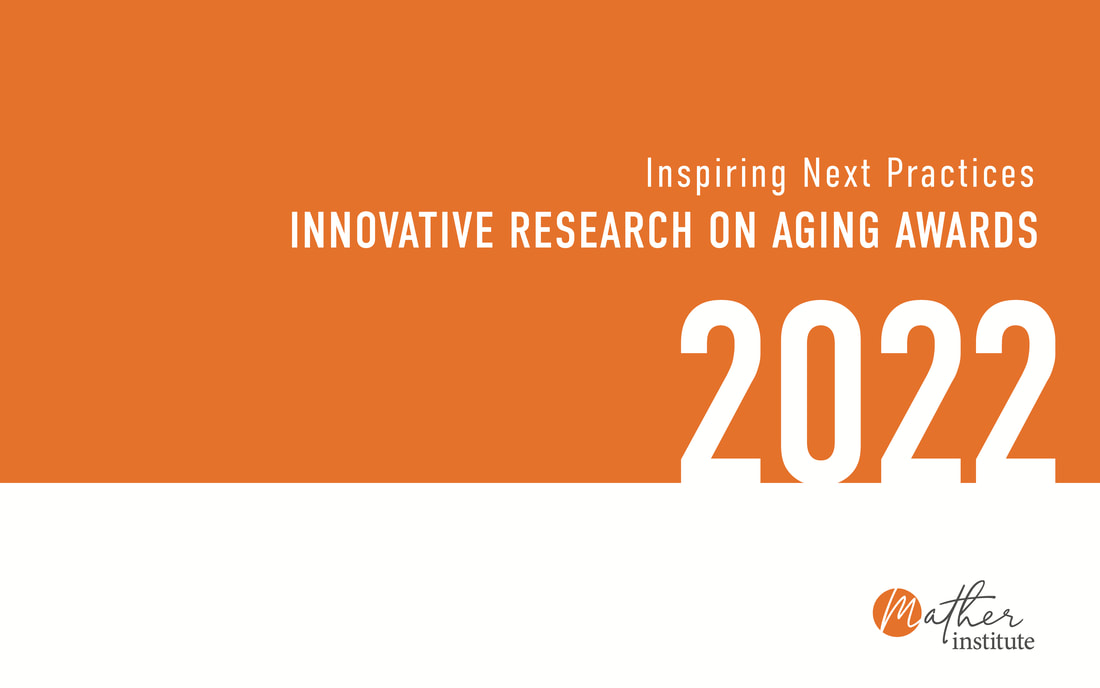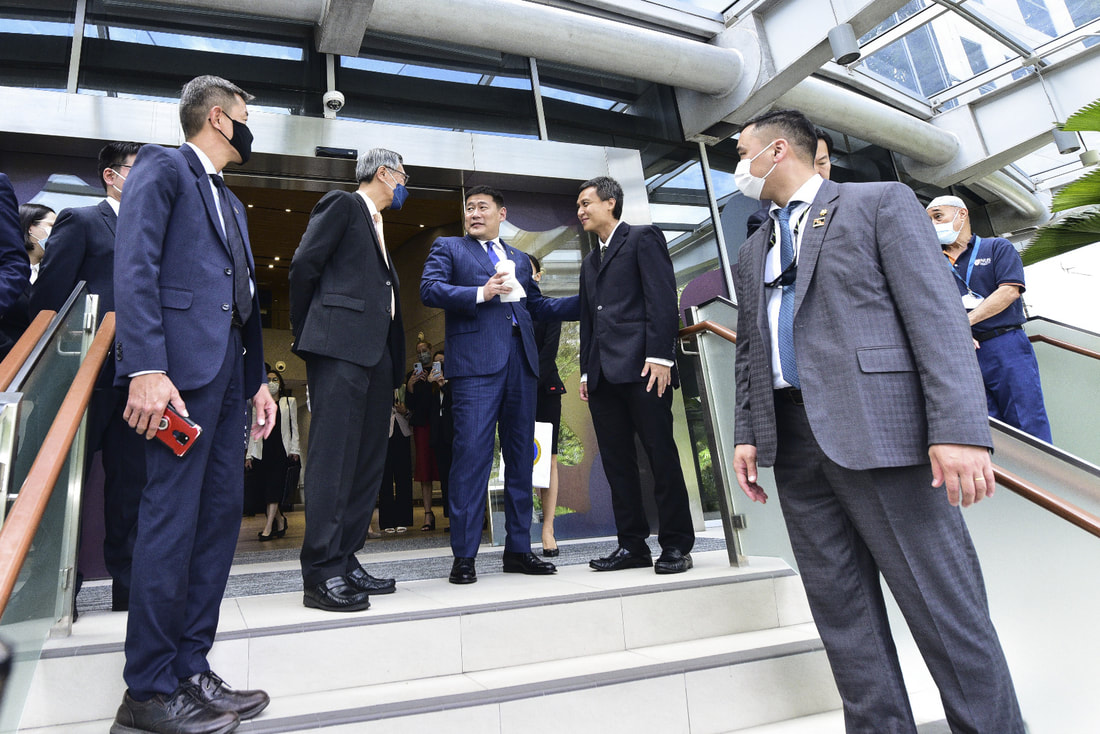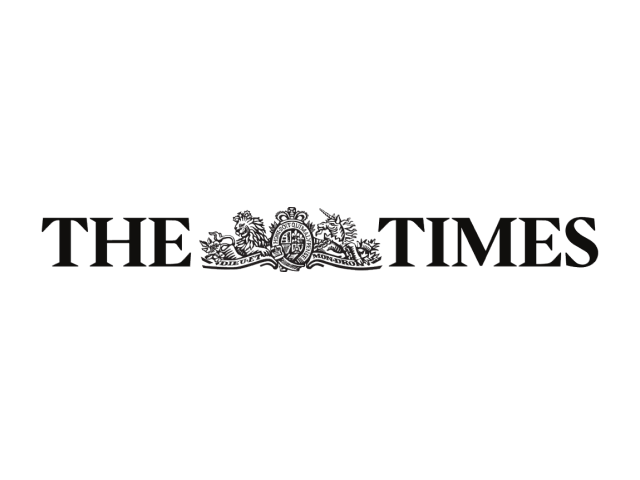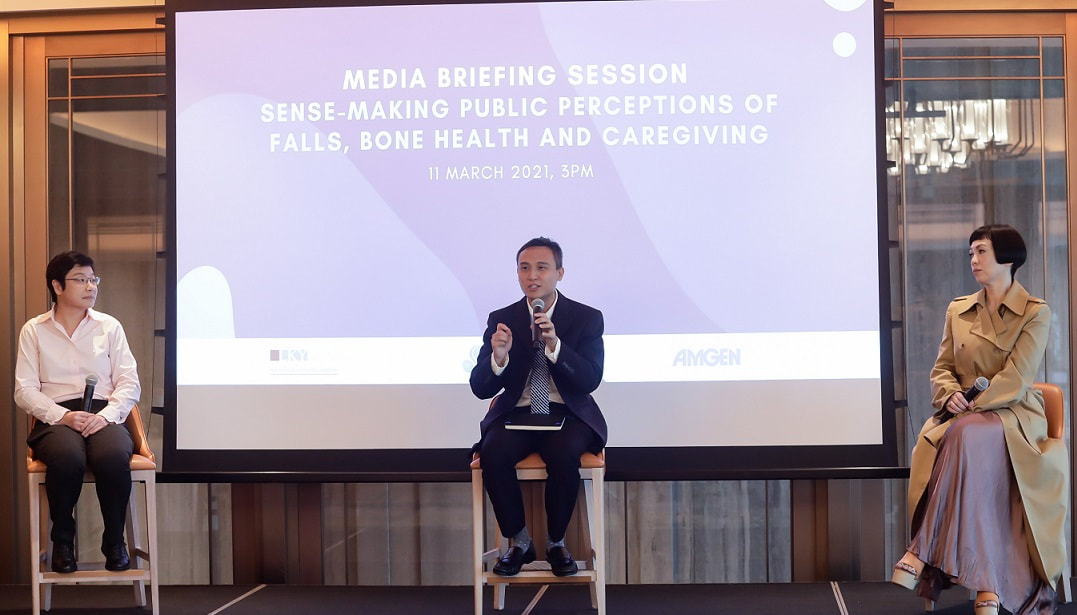Impact Stories
|
Building an Age-Inclusive Healthcare System in Singapore
Among the trends that will profoundly shape the future of healthcare in Singapore is the rapid ageing of the population. While the country is ahead of the curve in terms of preparations for an ageing population, efforts should also be directed at harnessing its benefits through large systemic shifts. Featured in ETHOS, a publication of the Civil Service College, this commentary outlines four strategies to cultivate a more age-inclusive healthcare model.
|
|
Mather Institute's Innovative Research on Aging Awards 2023
Our study, which explored how older adults use TikTok to engage in discourses on old age, won the bronze prize at the Mather Institute's 2023 Innovative Research on Aging Awards. Award recipients are selected based on relevance to important problems, quality of research methods, usability of findings and recommendations, and ability to contribute to innovation in senior living.
|
|
The Rise of Older Influencers: Their Impact, Potential and Future
The rise of older influencers throws up some interesting questions regarding their place in the digital sphere. Exactly what kind of “influence” can these older influencers have on society? Do they currently hold any influence? Who consumes their content? What are the possible ramifications of their presence on social media? Where do they fit in the influencer ecosystem, especially as compared to their younger, more seasoned counterparts? What lies in store for them in the future?
|
|
The Gerontologist Podcast Interview
In an episode of The Gerontologist Podcast, Dr Howard Degenholtz interviewed Dr Reuben Ng about two papers which looked at ageism on TikTok. In "Not Too Old for TikTok: How Older Adults Are Reframing Aging", Dr Ng examines how older adults use TikTok, and in "Hostility Toward Baby Boomers on TikTok", the use of the hashtags #Boomer and #OkBoomer among younger people. Taken together, these two papers shed light on fascinating sub-cultures of the virtual world.
The Gerontologist Podcast is part of the GSA on Aging Podcast Series. |
|
|
LKYSPP Festival of Ideas 2022: Digital Inclusion and Resilience for Tomorrow's Generation
In partnership with UOB, the Lee Kuan Yew School of Public Policy (LKYSPP) conducted a survey to understand Singaporeans' attitudes and behaviours regarding banking inclusivity and digital resilience. Findings from this survey were launched at the LKYSPP's Festival of Ideas 2022. In a session moderated by Dr Reuben Ng, Principal Investigator of the project, panellists and audience members discuss the research findings and their implications for Singapore and the general public.
|
|
Mather Institute's Innovative Research on Aging Awards 2022
Our study comparing age-based and role-based framing over 210 years won the bronze award at Mather Institute's 2022 Innovative Research on Aging Awards. Created to inspire next practices, the annual award recognizes applied research that offers important implications for the senior living and aging services industries.
|
|
NUS IPUR Inks Partnership to Support Public Service Transformation in Mongolia
The Lloyd’s Register Foundation Institute for the Public Understanding of Risk (IPUR) at the National University of Singapore (NUS) signed a Memorandum of Understanding with Mongolia's Ministry of Justice and Home Affairs to support public service transformation in Mongolia. The MoU was inked on 8 July 2022 on the sidelines of a visit by Prime Minister of Mongolia Oyun-Erdene Luvsannamsrai to NUS. Led by Dr Reuben Ng, the joint partnership will see IPUR and Mongolia’s Ministry of Justice and Home Affairs co-create data-centric policies and optimize human capital in the public service of Mongolia.
|
|
Data Innovation Lab: Supporting Government Transformation in Mongolia
In Mongolia, the need for data literacy and data innovation was identified through government transformation programmes. Data from the 2019 World Risk Poll also showed that the country ranked the highest for the gap between current risk experience and how worried they are about future risks. With these motivations, the LRF Institute for the Public Understanding of Risk teamed up with the National Academy of Governance of Mongolia to co-create programmes on data literacy and risk communication.
|
|
|
Older People are Using TikTok to Defy Ageist Stereotypes
Individuals aged 60 and above have begun making their way onto TikTok. Our study, which found that many of these older TikTokers are using the platform to push back against ageism and rewrite socially constructed notions of old age, received extensive media coverage.
|
|
How Asia, Once a Vaccination Laggard, Is Revving Up Inoculations
Prior to the COVID-19 pandemic, attitudes towards immunization had always been mixed in Asia due to skepticism about vaccines. By analyzing an online media dataset in Asia, we discovered that views towards vaccines in the region are now mostly positive.
|
|
Understanding Public Perceptions of Fall Risk and Bone Health
The prevalence of disability in Singapore is expected to grow by 5 times in the next 40 years. However, igniting conversations around falls and prevention programmes has always been a challenge. People tend to assume that falls are inevitable or unpreventable, and in Asia, discourse on bone health treatments is often over-medicalised. We embarked on a study to understand public perceptions of fall risks and to learn how programmes could be designed to focus on preventing fall-related bone disease.
|
|
|
Caregivers Play a Role in Preventing the First Fracture
As part of Amgen's Our Unbreakable Bond campaign, the Lee Kuan Yew School of Public Policy and Amgen Biotechnology Singapore jointly produced a research report titled Sense-making Public Perceptions of Falls, Bone Health and Caregiving. The study leveraged a 10-billion-word online media dataset analysed using artificial intelligence and interviews to explore perceptions around bone health, serious falls and caregiving. It advocates for more societal conversations and support for caregivers.
|
Risk Experience and PerceptionWe discovered significant gaps between individual perceptions of risk and narratives on risks presented in the media. Insights from our study highlighted the importance of policy communications and explained why framing climate change as a risk could spark change and action.
Learn more here and watch the full UR2020 session here. |
|
Risk Talk: Batik Data SculptureThe Lloyd's Register Foundation Institute for the Public Understanding of Risk (IPUR) funded the production of "Risk Talk" - a Data Sculpture utilising Batik Art to visualise how risk perceptions have changed over the past 200 years. Dr Pablo Suarez, Artist-in-Residence at IPUR came up with the concept and design of the structure, and Assistant Professor Reuben Ng, Lead Scientist (Data & Technology) at IPUR provided the architecture and analytics.
|
|
